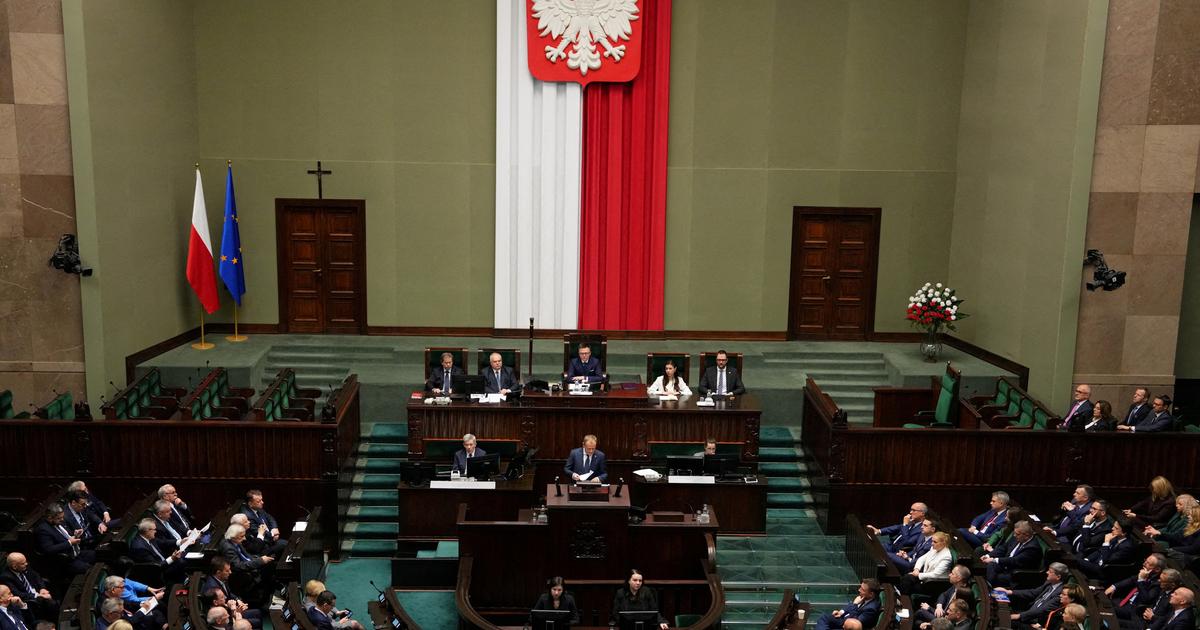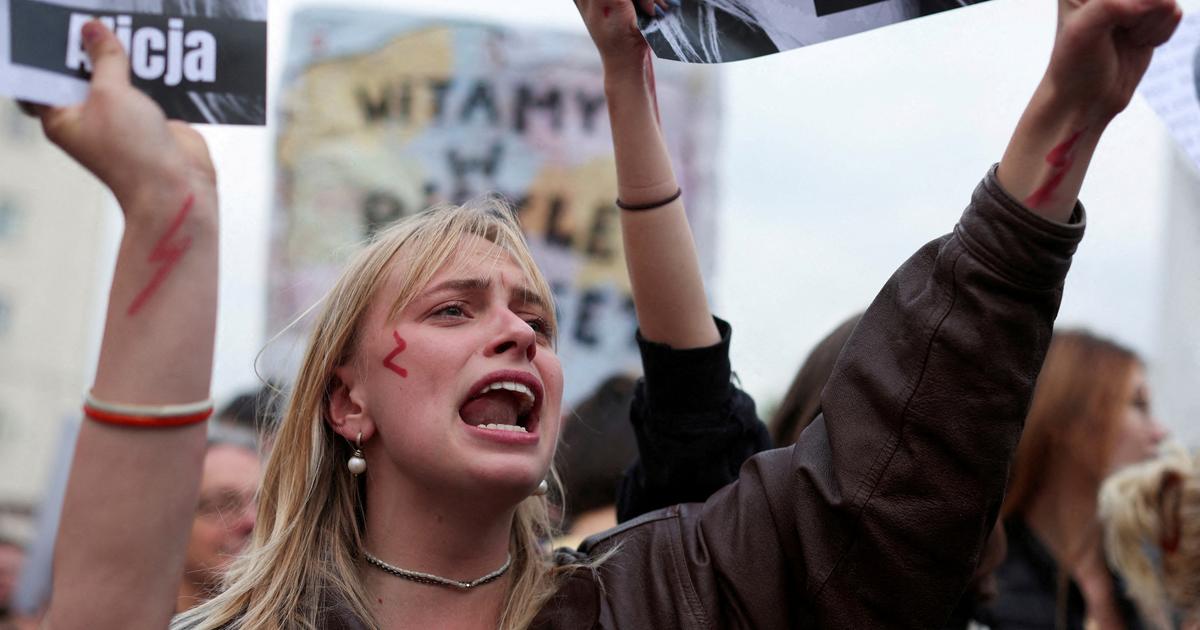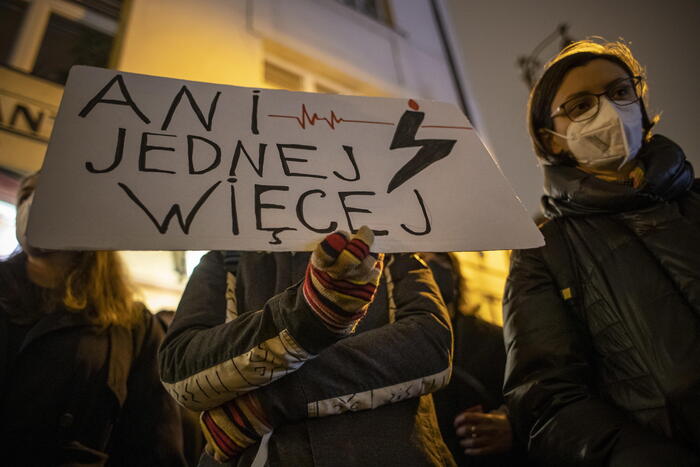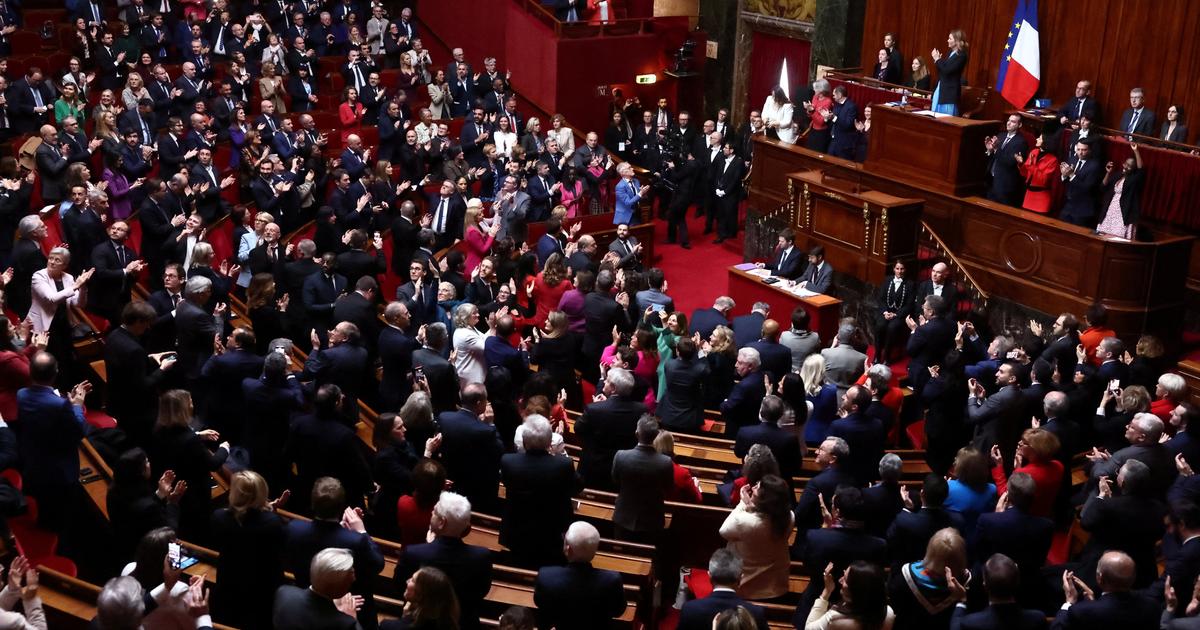A group of activists protest outside the Constitutional Court of Ecuador.Andrés Avila / EFE
The Constitutional Court of Ecuador decided to decriminalize abortion in all cases of rape and not only when the victims are women with mental disabilities, as up to now the Ecuadorian Penal Code has included.
With seven votes in favor of a total of nine judges, that part of Article 150, subsection two, which only considers abortion not punishable, is declared unconstitutional when "the pregnancy is the consequence of rape in a woman suffering from mental disabilities."
With its pronouncement, the Constitutional Court of Ecuador extends the exemption of criminal responsibility to all victims, also highlighting that the Constitution of the Andean country recognizes in its article 66 the right of people “to make free, responsible and informed decisions on their health and reproductive life and on deciding when and how many daughters and sons to have ”.
At the end of this Wednesday, the content of the Court's resolution had not been made public, but the decision taken by a larger majority than the one that led to equal marriage in June 2019 was made public. Then, there were five votes to for and four against.
That same year, three months later, the National Assembly debated the decriminalization of abortion for rape but rejected the reform of the Penal Code.
Feminist collectives celebrated the news as a social conquest that partly alleviates the vulnerability of many Ecuadorian girls, in a context of normalization of sexual abuse in the family environment and with bulky figures that reveal the reality of the reproductive health of minors and minors. young Ecuadorians. It is the second country in South America, after Venezuela, with the highest rate of adolescent pregnancy, with 77.3 out of every 1,000 deliveries. According to the National Coalition of Women, in a report on arguments to give way to decriminalization, 20,052 girls under the age of fourteen gave birth between 2008 and 2018 and all were treated in the health system.
With figures from the Surkuna organization, one of the plaintiffs in the case that has now been resolved by the Constitutional Court, 250 women have been prosecuted and imprisoned in the Health system for requesting care for ongoing abortions and / or premature births, under the suspected induced abortion.
85% of the almost half a million women who have aborted in the country between 2004 and 2014 did so clandestinely or through self-induction.
Five girls between the ages of 10 and 14 give birth every day in Ecuador.
Due to their age, the law considers that these 1,816 pregnancies per year are always the result of rape.
But that same law condemned them.
Or having an unwanted child after an episode of sexual violence or risking jail time for terminating the pregnancy.
One of the most important cases concluded at the end of 2020 when Ecuadorian President Lenín Moreno had to publicly apologize on behalf of the State to Paola Guzmán's mother, in compliance with an order of the Inter-American Court of Human Rights.
Ecuador had been sentenced to compensate the family of the 16-year-old girl who was abused by a teacher 50 years her senior for a year and ended up committing suicide.
It happened 18 years ago.
The person responsible was never convicted and the IACHR acknowledged the abandonment of the institutions to the victim.
Lasso supports the decision
The president-elect, Guillermo Lasso, with a conservative tendency and strong religious convictions, issued a statement of respect for the resolution of the Constitutional Court, assuring that he will make his government officials abide by it. He remarked that despite not agreeing and declaring himself Catholic, "the true heart of a democrat is known at times like this, when he is capable of respecting authority even when he does not agree with it." Appealing to the independence of powers and the secularism of the State as non-negotiable principles, he said: "It is not worth that they are invoked only when they are convenient for us."
In his victory speech after winning the elections earlier this month, Lasso had offered to become together with his wife - who has spoken openly this week against abortion calling it "murder" - into a kind of tutor for raped girls and for the children born of those forced pregnancies.
"We will be their parents," he proclaimed.
Subscribe here to the
EL PAÍS América
newsletter
and receive all the informative keys of the current situation in the region.









